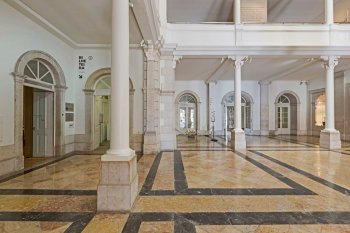Explore the best places
Cultural Centers in Lisboa
Escola Portuguesa de Arte Equestre
- art
Calçada da Ajuda, 102
1300-006, Lisboa
Localizada nos Jardins do Palácio Nacional de Queluz e com apresentações regulares no Picadeiro Henrique Calado, na Calçada da Ajuda, a Escola Portuguesa de Arte Equestre proporciona um regresso ao passado, dedicando-se à preservação das artes equestres.
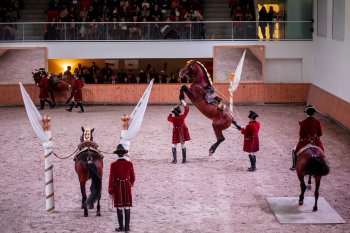
Centro Interpretativo da Ponte 25 de Abril - Experiência Pilar 7
- art
Avenida da Índia - Pilar 7 da Ponte 25 de Abril
1349-028, Lisboa
The Interpretive Center of the 25 de Abril Bridge (Pilar 7 Experience) offers a unique discovery of the 25 de Abril Bridge. The experience culminates with the ascension, through an elevator, to a panoramic viewpoint, which is up to the board of the bridge and allows an unprecedented and privileged view of the city of Lisbon, especially on the area of Belém and the Tagus River.
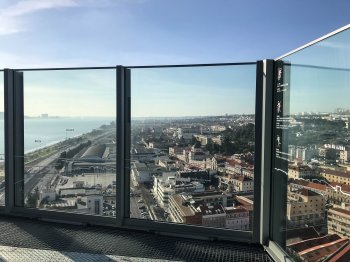
Museu do Tesouro Real / Museu do Palácio Nacional da Ajuda
- heritage
Largo da Ajuda
1349-021, Lisboa
Built in the XIX century, in a neoclassical style, the palace was the permanent residence of the King D. Luís, his wife and his children, which lived here on the second half of eight hundred. The throne-room, the supper-room and the “Despacho” room are preserved as in the time of the Royal family. The museum exhibits collections of decorative arts from the XIX century, silvers, paintings, tapestry and furniture.
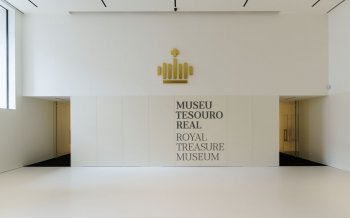
Reservatório da Mãe d'Água das Amoreiras
- heritage
Praça das Amoreiras, 10
1250-020, Lisboa
The reservoir Mãe D’Água of the Amoreiras was planed by the architect Carlos Mardel in 1746. Its function was to take and distribute the water supplied by the Águas Livres Aqueduct. It has a terrace with panoramic views of the city.
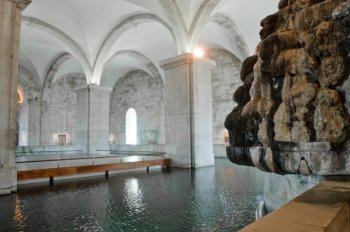
Museu Arqueológico do Carmo
- heritage
Largo do Carmo
1200-092, Lisboa
In this museum, placed in the ruins of the former Carmo convent and church (XIV century), it is possible to find pre-historic, roman, visigothic and medieval objects.
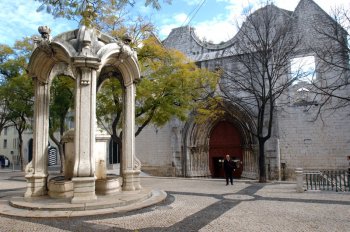
Teatro Nacional Dona Maria II
- art
Praça Dom Pedro IV
1100-201, Lisboa
Placed on the north side of Rossio, the National Theatre Dona Maria II, which name pays homage to the daughter of Dom Pedro, was built in the 1840s by the Italian architect Fortunato Lodi. The façade of this neoclassic building is composed by six columns coming from the São Francisco Convent and is ended by a triangular fronton where the figures of Apollo and the Muses are sculpted. On top of the fronton is possible to see the statue of Gil Vicente, maybe the most important Portuguese dramaturge of all times, considered to be the father of the national theatre.
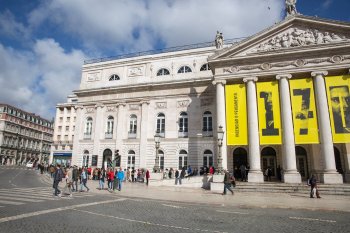
Museu de Lisboa - Teatro Romano
- heritage
Rua de São Mamede, 3-A
1100-532, Lisboa
This Roman Theatre Museum, opened in 2001, shows what was the theatre of the ancient city of Olisipo. Is housed in a 17th century building, which has been refurbished over the centuries. The Museum encompasses multiple areas where you expose archaeological remains and traces which refer not only to the time of Theatre (1st century), but also for other traces which bear witness to an intense human occupation of this site.
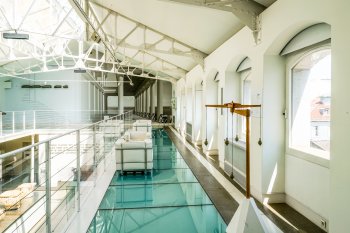
Museu de Lisboa - Santo António
- heritage
Largo de Santo António à Sé, 22
1100-499, Lisboa
This small museum, placed close to Igreja de Santo António (Santo António Church), presents a collection of engravings, paintings, sculptures, ceramics and liturgical ornaments that evoke the patron saint of the city. Gold and silver objects decorate the space.
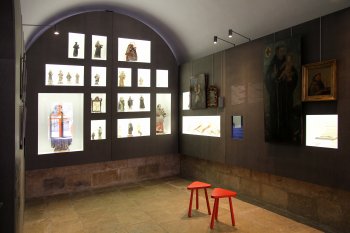
Museu de Lisboa - Palácio Pimenta
- heritage
Campo Grande, 245
1700-091, Lisboa
Placed at the Palácio Pimenta, a manor dated from the early XVIII century; in this space you may see archaeological pieces, paintings, drawings, engravings and lapidary that illustrate the city of Lisbon, since the prehistoric period till nowadays. Among the works in exhibition the “O Fado”, by José Malhoa and a oil-painting of Dirk Stoop stand out. The earthquake of 1755 is here shown with images of devastation and reconstruction projects.
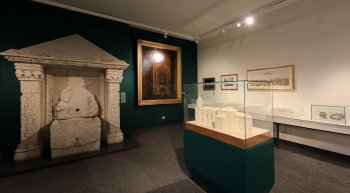
Museu Nacional de História Natural e da Ciência
- heritage
Rua da Escola Politécnica, 58-60
1250-102, Lisboa
The National Museum of Natural history is an organism of the University of Lisbon, which has the functions of preserving heritage, investigate and disseminate knowledge through the methods and techniques of communication that are appropriate. In the space dedicated to science take place exhibitions about exact sciences (various modules relating to physical laws, documented with interactive experiences). Is divided into four thematic nuclei: the historical and interactive exhibition of long duration, the chemical laboratory of the Ecole Polytechnique, the experimental workshops of chemistry and the Planetarium.
